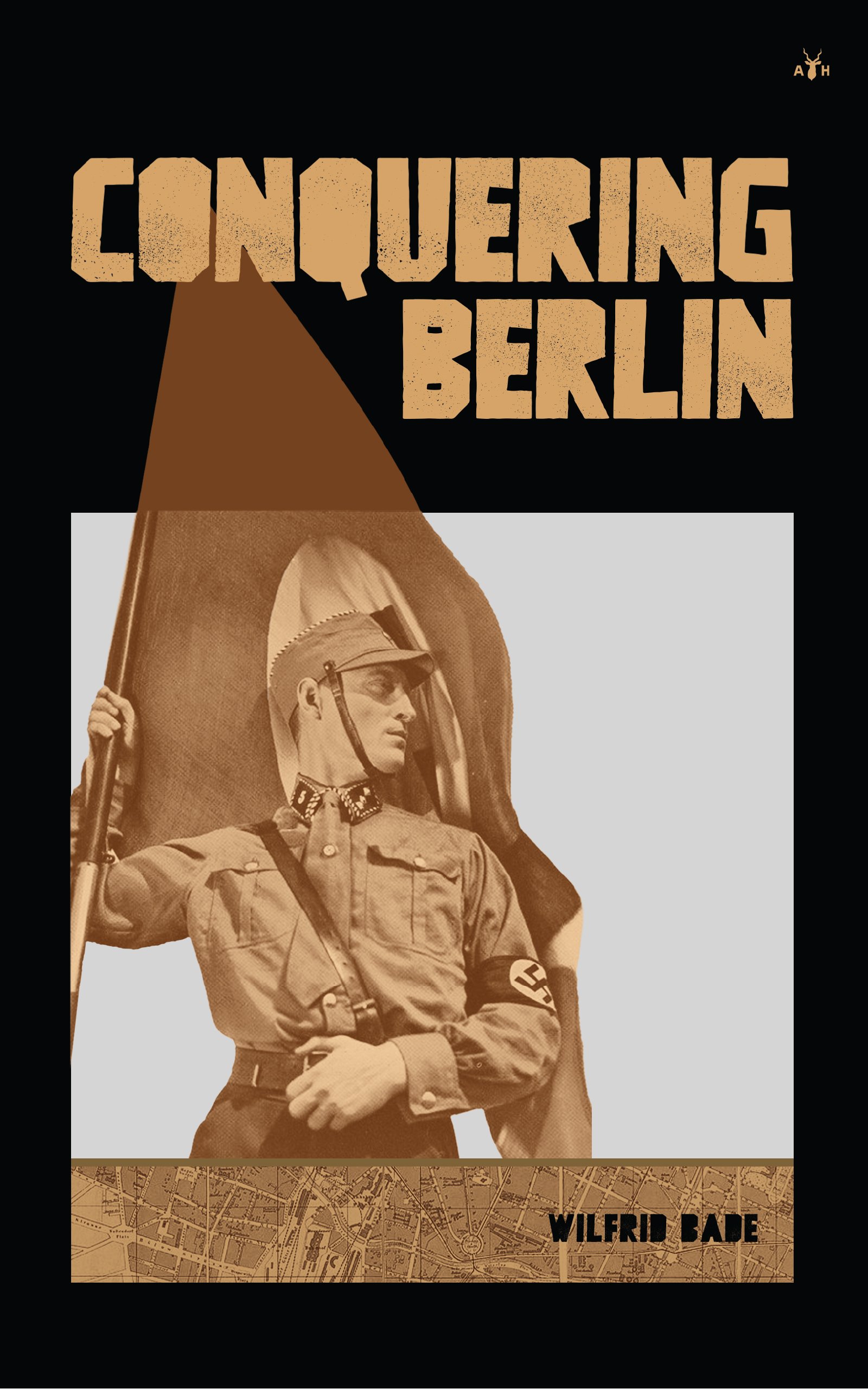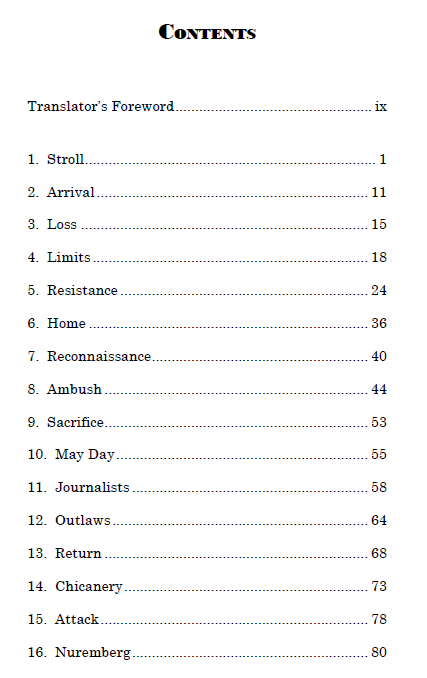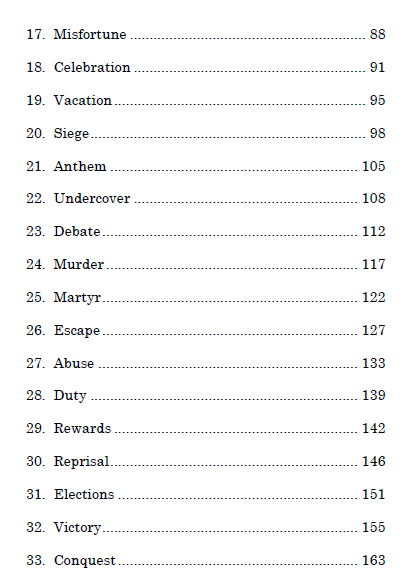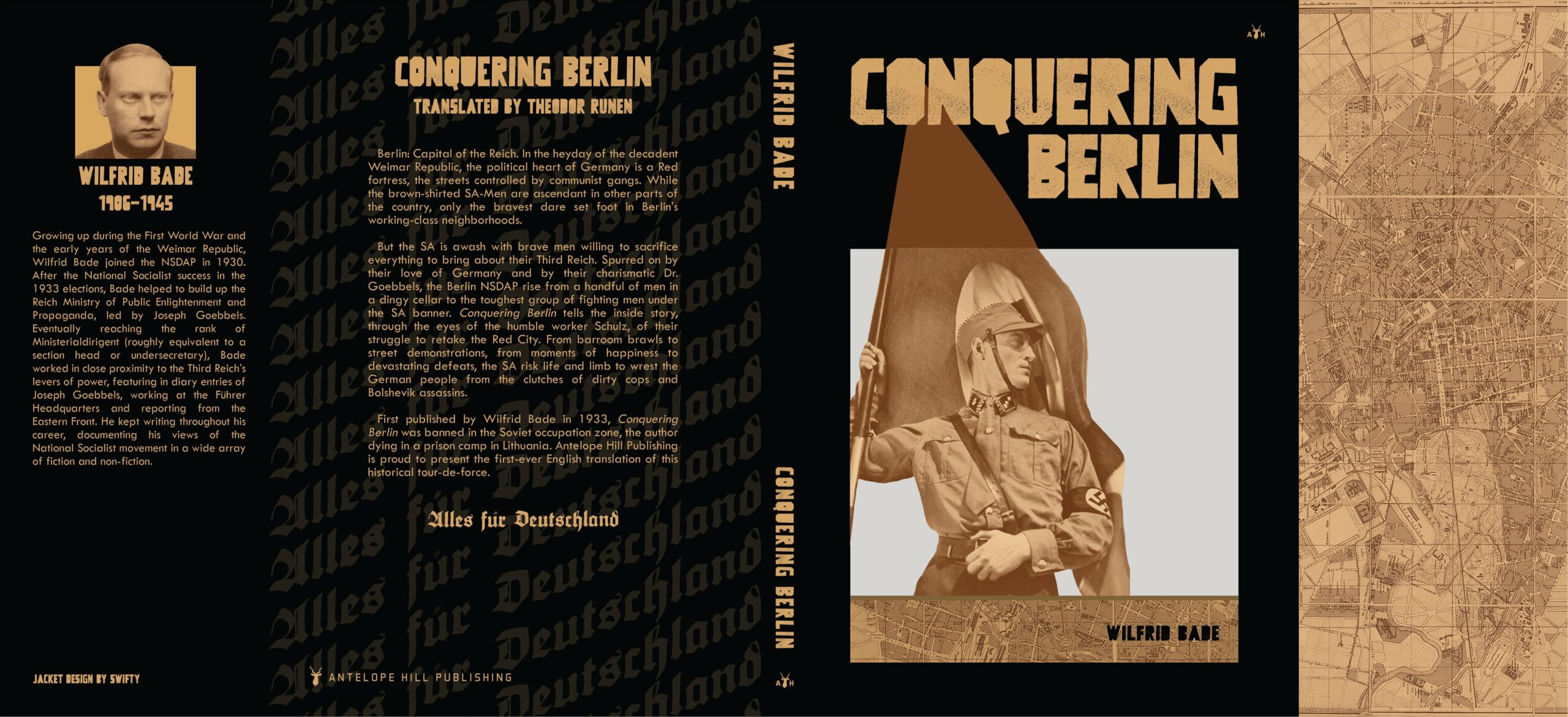Conquering Berlin by Wilfrid Bade
$7.45 – $31.89
183 Pages, 5.5″x8.5″
Audiobook read by James Allsup. Preview below:
Three chapters are available to read, free online:
DISCOUNT: Purchase it within The Red-Brown Bundle for approximately 15% off: CLICK HERE
Purchasing internationally? Purchase from Amazon: Click here to order
—
Berlin: Capital of the Reich. In the heyday of the decadent Weimar Republic, the political heart of Germany is a Red fortress with streets overrun by communist gangs. While the brown-shirted SA-Men are ascendant in other parts of the country, only the bravest dare set foot in Berlin’s working-class neighborhoods.
But the SA is awash with brave men willing to sacrifice everything to bring about their Third Reich. Spurred on by their love of Germany and by the charismatic Dr. Goebbels, the Berlin NSDAP rise from a handful of men in a dingy cellar to the toughest group of fighting men under the SA banner. Conquering Berlin tells the inside story, through the eyes of the humble worker Schulz, of their struggle to retake the Red City. From barroom brawls to street demonstrations, from moments of happiness to devastating defeats, the SA risk life and limb to wrest the German people from the clutches of dirty cops and Bolshevik assassins.
First published by Wilfrid Bade in 1933, Conquering Berlin was banned in the Soviet occupation zone, the author dying in a prison camp in Lithuania. Antelope Hill Publishing is proud to present the first-ever English translation of this historical tour-de-force.
Paperback ISBN: 978-1-953730-85-5
Hardcover ISBN: 978-1-953730-97-8
Ebook ISBN: 978-1-953730-86-2
| Weight | N/A |
|---|---|
| Dimensions | N/A |
| Format | AudioBook (Chapters), Audiobook (Single), eBook, Hardcover, Paperback |












AB –
A fairly brisk and easy read, but an excellent one. Through the narrator Schulz, who is a very likeable everyman, Bade paints a vivid portrait of Weimar Germany that is sorely missing from the average person’s perspective these days, as well as one of the average German who lost just about everything in the aftermath of WWI.
5/5, AH is doing great work by publishing these titles.
NH –
Very good book. Easy to read and understand. Tells the story of the Weimar Republic and the fight against Bolshevism from the eyes of the SA. I recommend this book for any collection about German history. Good price, but the hardcover is a little pricey. Fantastic read either way.
Joseph –
A gripping historical look into an unknown era of the NSDAP, the brutal and slow venture into a ‘Red Berlin’, as it highlights the unknown soldiers of an impossible task.
The events are told with surprising levels of both humor and anguish, with close descriptions of what it was like to see Dr. Joseph Goebbles in action, a mans who’s feats are hazy or unmentioned to even many modern supporters of the NSDAP.
This book is not too long to bore the reader, yet leaves you wishing for more the instant you put it down.
Anonymous –
Interesting tour through the experiences of a man during a great revolution with mostly peaceful protests.
Dalton –
Conquering Berlin tells the story of the NSDAP’s often slow, hard-fought, and hard-won victory in the height of the reddest part of Germany, referring both to the level of communist activity and the incredible bloodshed. Though this is not an autobiography, or even a biography of a real person, it is told from an interesting perspective. The author was present and active in the early Berlin NSDAP but chose not to make this book about his story as a propagandist in the party from 1930 to 1933. Instead, the perspective is told from a fictional person who would represent all men who had served in the pre-1933 NSDAP. He is without serious convictions- the man is unemployed at first, only joins because he was feeling particularly resentful towards the police, and holds no serious religious convictions, only praying once throughout the whole three-year narrative, he was intended to act as a stand-in for the common German reader to insert himself into. Though the primary audience today that reads this sort of literature is likely to be far more Christian than the average German in 1933, it’s still easy to sympathize with the fictional SA man Schulz.
It’s a very spotty narrative because not only is it telling the story of Schulz, it’s telling the story of the Berlin party. The reader will jump from a story of one rally, one public march, one attack from police or communists (who often worked in coalition), to the next one that happened several weeks or months later. This happens constantly, but it’s not necessarily a bad thing, but it does make the book seem to lack focus at points. The only part of the narrative I can recall having multiple chapters dedicated to a short point of time was the death of Horst Wessel, who was one of the more charismatic and uplifting personalities in the book. Even still, the purpose of this narrative-jumping is to show just how much blood was spilled, how many nights were spent in jail or in a hospital, how many friends were severely injured by thrown bricks, broken beer bottles in bar fights, or even assassination in the middle of the night. In this way, the narrative teaches the value of sacrifice in the face of overwhelming odds for a cause in which you know to be true. Though there are certainly other themes, such as obedience to leadership, as seen primarily in the party’s reverence to the Berlin leader Joseph Goebbels, there is no other message seen so often as the honor and joy one holds in sacrificing for a cause one knows to be true.
I am happy to say that Conquering Berlin is an entertaining historical narrative, but it additionally offers something more. Conquering Berlin a moral guide to those who can imagine a future of nothing more than the worst that Weimar Berlin had to offer. The young nationalist today sees sexual immorality and idolatry everywhere he goes and cannot imagine ever overcoming it. This book tells a different tale. It tells the story of how a rag-tag group of national socialists without any money and headquarters held within a basement conquered the most sexually degenerate and idolatrous city the modern world has ever seen. In a world that seems to be emulating Weimar Berlin, take heed. Berlin was conquered once, and by God, it can be conquered again.
In Christ,
Dalton